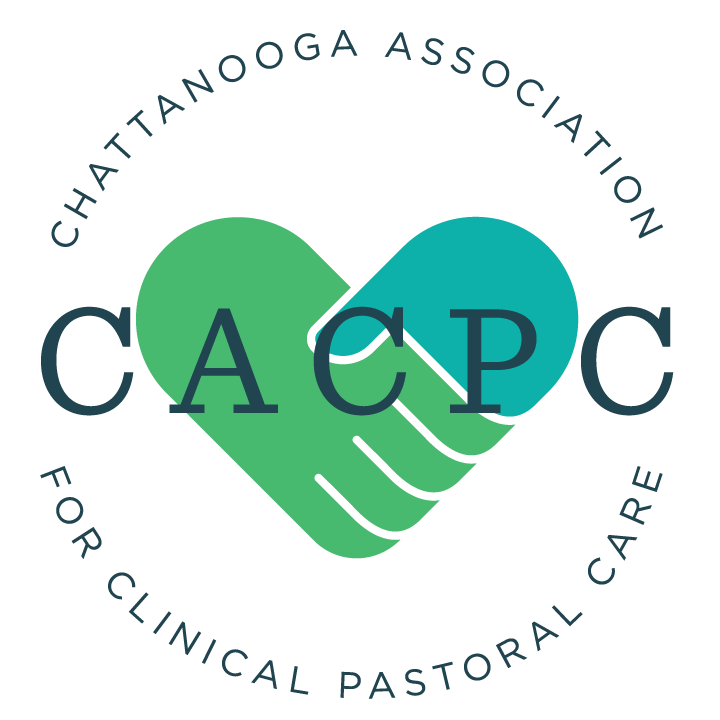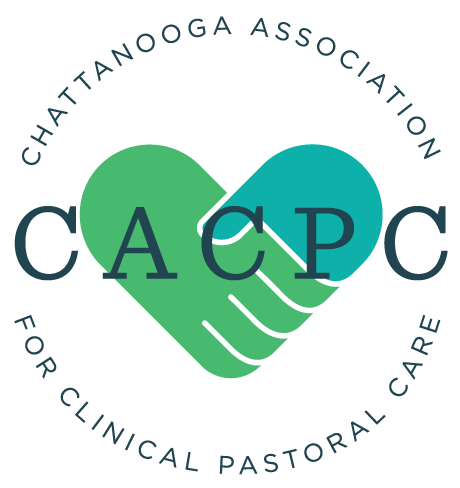
Program Overview
The Chattanooga Association for Clinical Pastoral Care offers programs of Clinical Pastoral Education through Erlanger Health System and Hospice of Chattanooga. Alternate training sites are sometimes available, with Erlanger and Hospice of Chattanooga as the central sites.
Participants in the program are expected to:
Minister to persons in crisis within an interdisciplinary team setting;
Develop a learning path with objectives and goals addressing one's particular needs as a person and minister;
Increase self-awareness of one's ministry impact on others, enabling the development of pastoral identity and function;
Minister and learn alongside colleagues who will offer mutual support and critique;
Receive pastoral supervision of one's ministry, focusing on the development of personal and professional gifts and abilities;
perspective with other persons from a variety of social and faith experiences;Become more aware of ministry within the social systems, structures and conditions that impact our lives.
PROGRAM TYPES
Level I and II units of CPE are offered on a unit-by-unit basis. Level I CPE is a person's initial unit. With completion of expected learning outcomes, a person may then enroll for further units of CPE for continued learning and growth. One unit of CPE requires 400 hours of work, 300 hours are dedicated to pastoral care in the clinic or parish, and 100 hours are used for educational seminars and supervision. Programs are as follows:
Extended Unit of Clinical Pastoral Education (Hospital-Based)
In the Fall (late August) and Winter (early January), 16 and 18-week programs of part-time CPE are offered. The part-time schedule and extended time period enables participants to serve in the hospital setting while attending school or serving in their own ministry setting. Participants attend seminars on two half-days per week (usually Monday and Wednesday), while serving as chaplain to assigned areas of the hospital 12 hours to 15 hours per week. In addition, each participant serves in a weekend 24 hour, in hospital, on-call rotation. Over night sleeping facilities are provided.
Extended Clinical Pastoral Education (Parish-Based)
As requested, a nine-month extended program of CPE is offered beginning in September or October for persons interested in using their parish or institutional setting for ministry and learning. Full-time clergy are usually attracted to this program, as it enables them to remain in full-time service while gaining clinical training.
Full-Time Summer Unit of Clinical Pastoral Education
A full-time unit of CPE is offered during the summer months for 10 ½ weeks. Participants serve full-time 40 hours per week as chaplain in assigned clinical areas. Daily seminars and weekly individual supervision are included in the work week. Each student also participates in 24-hour, in-house chaplain on-call responsibilities. Overnight sleeping facilities are provided.
Full-Time Residency Year of Clinical Pastoral Education
A full time residency year of Clinical Pastoral Education is offered. The program normally begins in late August and continues to the end of August the next calendar year. Participants serve full-time, 40 hours per week, as chaplain to assigned clinical areas. Daily seminars and weekly individual supervision are included. Each student participates in 24 hour, in house, chaplain on call responsibilities. Over night sleeping facilities are provided. Chaplain residents are paid a stipend.
PROGRAM OPPORTUNITIES AND ADVANTAGES
CPE with CACPC offers:
A program structure to meet the needs of theological students, lay ministers and local clergy;
Clinical training sites that include ministry with persons in the crises of illness, trauma, rehabilitation, dying, and aging; Experience with persons from diverse cultural and social backgrounds from the tri-state area of Tennessee, Georgia and Alabama. The rich and varied religious culture of the South and the surrounding mountain areas is a central aspect of the training site;
Experience with colleagues in ministry from diverse backgrounds. The CPE supervisors each come from differing faith backgrounds;
A unique program of CPE governed by a board of directors made up of professional persons, who are supportive of pastoral ministry and education;
Participation in a "teaching hospital" setting that includes medical students, nurses and other allied health professionals.
Ministry and learning with hospice patients, family members and staff
What is Clinical Pastoral Education?
Clinical Pastoral Education (CPE) is a method of theological education for ministry. It is experiential, person-centered education focusing on learning and developing pastoral skills in a clinical setting. Ministers, theological students and other persons interested in learning ministry participate in CPE for personal and professional growth. Under the guidance of a supervisor, CPE students from all faiths provide pastoral care to hospital patients, family members and staff. Increased confidence and competency in pastoral function and identity occur as one learns by experience.
The Essential Elements in CPE include:
The actual practice of ministry to persons
Detailed reporting and evaluation of that practice
Pastoral Supervision
A process conception of learning
A theoretical perspective on all elements of the program
A small group of peers in a common learning experience
A specific time period
An individual contract for learning that is consistent with the objectives of CPE
The CPE program must be conducted under the auspices of an ACPE certified supervisor (faculty) attached to an ACPE accredited CPE center.
What kinds of things might be included in the individual learning contract?
The CPE participant's contract is developed around the learning goals of
Pastoral Reflection - reflection on one's self as person and pastor in relationship to persons in crisis, the supervisor, and peer group members, as well as the curriculum and institutional setting.
Pastoral Formation - focus on personal and pastoral identity issues in learning and ministry.
Pastoral Competence - deepening and unfolding of competence in pastoral function, pastoral skills and knowledge of theology and the behavioral sciences.
Some centers also offer Pastoral Specialization, focusing on the student's desire to become competent and knowledgeable in a particular area of ministry, e.g. oncology, urban ministry, parish ministry, hospice ministry, etc.
What does CPE prepare a person to do?
CPE serves as a part of one's preparation for parish ministry, chaplaincy, lay ministry, teaching and counseling. A student's learning contract may be focused toward integration of theological, psychological, and pastoral insights into the role and function of a parish minister. Or the contract may be designed with a career goal of chaplaincy or pastoral counseling.
Some students, after completing several units of CPE, choose to enroll in Certified Educator CPE working toward certification as a CPE educator. In Supervisory CPE, the student learns the theory and practice of supervision and has an experience of supervising CPE students under the guidance and with the consultation of a CPE Certified Educator.
CPE develops the capacity for the pastoral and spiritual care of individuals, families and systems.
Many theological schools require one unit of CPE as a part of a theological degree program.
Other schools accept a year of CPE as the required intern year of ministry for a theological degree program.
A number of theological schools which are members of the ACPE have graduate degree programs which combine academic study and Certified Educator CPE.
Accreditation
The Chattanooga Association for Clinical Pastoral Care is accredited by The Association for Clinical Pastoral Education. Persons who wish to express concern about any aspect of the CACPC educational program may go to ACPE.edu to express the concern. Directions that will be found on the ACPE.edu website include: Policy for Complaints Alleging Violations of ACPE Education Standards, Policy for Complaints Against the Accreditation Commission, Professional Ethics Violations and Whistleblower Policy

